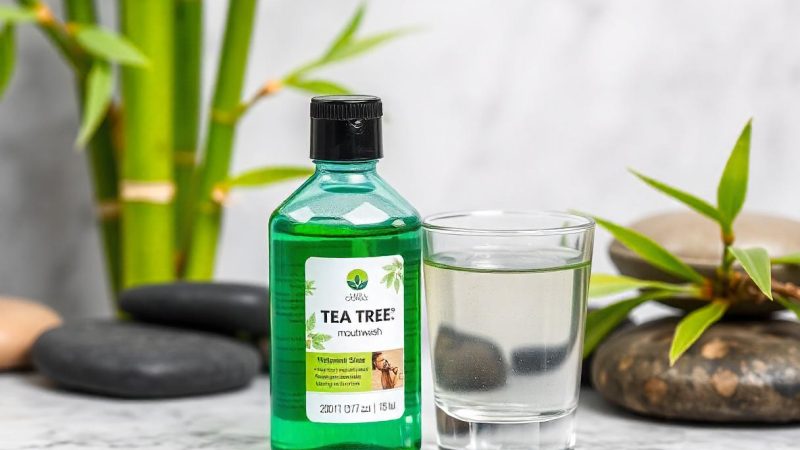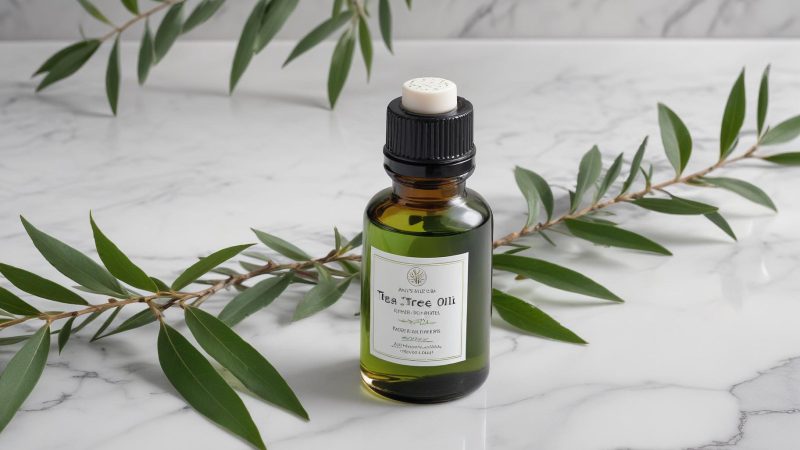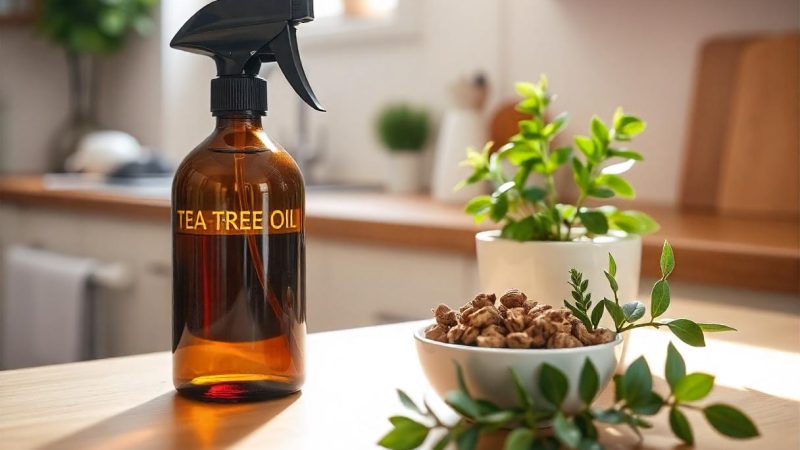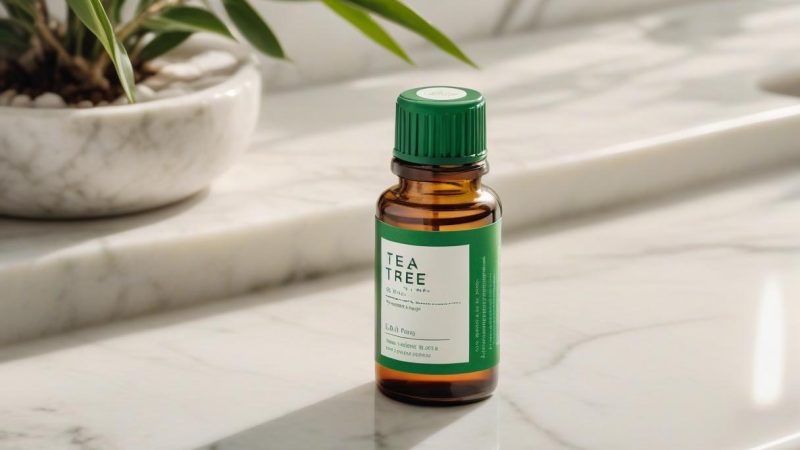Benefits of Tea Tree Oil for Deodorizing and Odor Control
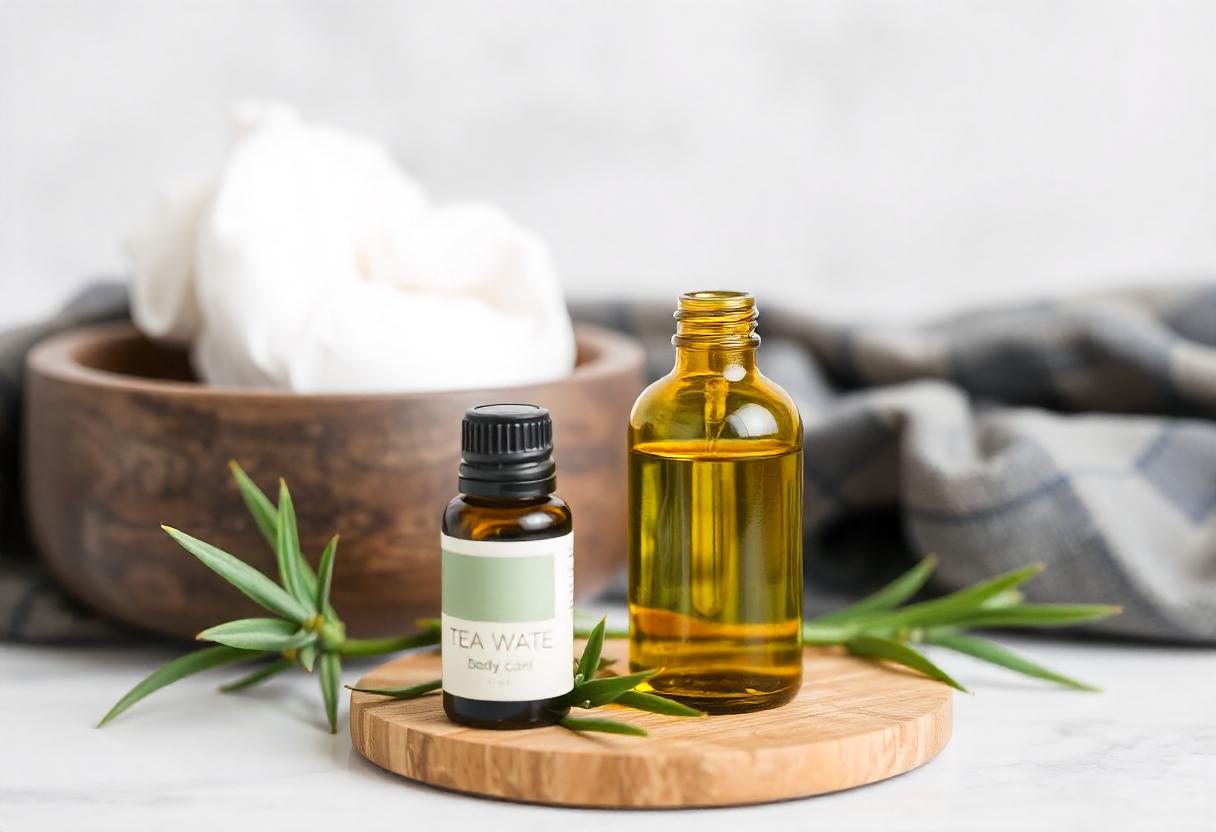
Tea tree oil, extracted from the leaves of the Melaleuca alternifolia tree native to Australia, is widely praised for its potent antimicrobial and antifungal properties. Beyond its popular uses in skincare and medicine, tea tree oil has found a significant role in household applications, especially in deodorizing and odor control. Its ability to neutralize bad smells while killing odor-causing bacteria makes it an eco-friendly alternative to chemical deodorizers. This article explores how tea tree oil can be used to control odors in different settings, supported by scientific research, and offers practical ways to incorporate it into everyday deodorizing practices.
What is Tea Tree Oil?
Tea tree oil is an essential oil obtained through steam distillation of the leaves of the Melaleuca alternifolia plant. It contains active compounds such as terpinen-4-ol, which gives the oil its powerful antimicrobial and deodorizing properties. These compounds not only eliminate bacteria but also help neutralize unpleasant odors, making tea tree oil an excellent natural deodorizer.
Benefits of Tea Tree Oil for Deodorizing and Odor Control
Tea tree oil provides several key benefits for neutralizing bad odors and maintaining a fresh environment:
- Antimicrobial Action: Tea tree oil’s ability to kill bacteria, fungi, and viruses helps eliminate the root causes of many unpleasant odors, such as body odor, pet smells, and mildew.
- Natural and Non-Toxic: Unlike many commercial air fresheners and deodorizers that contain artificial fragrances and harmful chemicals, tea tree oil is a natural, non-toxic alternative that is safe for use in homes with children and pets.
- Versatile Uses: Tea tree oil can be used to deodorize a variety of spaces and materials, including clothing, shoes, carpets, bathrooms, and garbage cans. Its versatility makes it a valuable tool in household cleaning and maintenance.
- Neutralizes Odors, Doesn’t Mask Them: Unlike conventional air fresheners that may simply cover up bad smells with fragrances, tea tree oil neutralizes the source of the odor by attacking the microbes responsible for it.
Scientific Evidence Supporting Tea Tree Oil’s Deodorizing Properties
Tea tree oil’s ability to control odors is largely due to its antimicrobial effects. Studies show that the oil effectively kills the bacteria and fungi that contribute to unpleasant smells, making it a practical natural deodorizer for home use.
1. Antibacterial Properties
Body odor, foot odor, and other bad smells often result from bacterial activity. When sweat interacts with bacteria on the skin, it produces unpleasant odors. Tea tree oil’s antibacterial action makes it highly effective at neutralizing these odors by eliminating the bacteria that cause them.
- Scientific Backing: A study published in the Journal of Antimicrobial Chemotherapy found that tea tree oil exhibited strong antibacterial activity against odor-causing bacteria like Staphylococcus epidermidis and Corynebacterium species (Carson, C. F., et al., 2006). The study demonstrated that tea tree oil significantly reduced bacterial growth, making it effective for use in deodorizing applications, such as controlling body odor.
2. Antifungal Action
Mildew, mold, and fungi are common sources of unpleasant odors in damp areas of the home, such as bathrooms and basements. Tea tree oil’s antifungal properties can help combat these fungi, preventing musty smells from developing.
- Scientific Backing: Research published in Mycopathologia showed that tea tree oil was effective in inhibiting the growth of various fungal species, including Aspergillus niger, which is responsible for mold growth (Hammer, K. A., et al., 2003). Using tea tree oil to treat areas prone to mold or mildew can help eliminate the musty odor associated with fungal growth.
3. Deodorizing by Disrupting Biofilms
Biofilms, which are slimy layers of bacteria that adhere to surfaces, are often responsible for bad odors in household items like garbage bins and drains. Tea tree oil’s ability to disrupt biofilms makes it particularly useful in controlling odors in these areas.
- Scientific Backing: A study published in Letters in Applied Microbiology found that tea tree oil disrupted biofilm formation by bacterial species such as Pseudomonas aeruginosa, which often causes unpleasant odors in kitchen drains and garbage disposals (Sarker, S. D., et al., 2008). By breaking down biofilms, tea tree oil helps eliminate the root cause of odors in hard-to-clean areas.
How to Use Tea Tree Oil for Deodorizing and Odor Control
Tea tree oil can be used in various ways to neutralize odors around the home. Below are some practical methods for incorporating tea tree oil into your deodorizing routine:
1. Natural Air Freshener Spray
Tea tree oil can be used to make a natural air freshening spray that neutralizes odors in living spaces without the use of harsh chemicals. This spray is effective for kitchens, bathrooms, bedrooms, and other areas of the home.
- How to Use: In a spray bottle, combine 1 cup of water with 1/2 cup of white vinegar and 10-15 drops of tea tree oil. Shake well before each use. Spray the solution into the air or onto fabrics and furniture to neutralize odors. For a pleasant scent, you can add a few drops of lavender or citrus essential oils to the mixture.
2. Deodorizing Garbage Bins
Garbage bins can harbor strong, lingering odors due to the buildup of bacteria and food waste. Using tea tree oil to deodorize and disinfect garbage cans can help eliminate unpleasant smells.
- How to Use: After cleaning the garbage bin, spray the interior with a mixture of water, white vinegar, and 10-15 drops of tea tree oil. Allow the solution to air dry. For ongoing odor control, place a few drops of tea tree oil on a cotton ball and leave it at the bottom of the bin between bag changes.
3. Shoe and Foot Odor Control
Tea tree oil can be used to eliminate foot odor caused by bacteria and fungi, as well as to deodorize shoes. Its antibacterial and antifungal properties help address the root cause of the smell.
- How to Use: To treat foot odor, mix a few drops of tea tree oil with a carrier oil (such as coconut oil) and apply it to clean feet daily. To deodorize shoes, place a few drops of tea tree oil on a cotton ball and leave it inside the shoes overnight. This will help eliminate the bacteria responsible for the odor.
4. Mildew and Mold Odor Control in Bathrooms
Tea tree oil is highly effective at neutralizing mildew and mold odors in damp areas, such as bathrooms and basements, where fungi thrive.
- How to Use: Mix 1 cup of water with 1/4 cup of white vinegar and 10-15 drops of tea tree oil in a spray bottle. Spray the solution on tiles, grout, and other surfaces prone to mildew. Leave it on for 10-15 minutes before scrubbing with a brush and rinsing. Regular use of this solution will help prevent mildew growth and keep the bathroom smelling fresh.
5. Laundry Freshener
Tea tree oil can be used in the laundry to remove odors from clothing, especially workout gear, socks, and towels that tend to retain bad smells.
- How to Use: Add 5-10 drops of tea tree oil to your regular laundry detergent when washing clothes. Tea tree oil helps eliminate odor-causing bacteria and leaves clothes smelling clean. It can also be used in a rinse cycle to deodorize washing machines.
6. Deodorizing Carpets and Upholstery
Carpets and upholstery can trap odors over time, especially from pets, spills, or smoking. Tea tree oil can be used to refresh these fabrics and eliminate unwanted smells.
- How to Use: Mix 1 cup of baking soda with 10 drops of tea tree oil in a container. Sprinkle the mixture over carpets or upholstery and let it sit for 15-20 minutes before vacuuming. This will help absorb odors and leave the fabric smelling fresh.
Precautions When Using Tea Tree Oil for Deodorizing
While tea tree oil is safe and natural, there are some precautions to keep in mind when using it for deodorizing:
- Dilution is Key: Always dilute tea tree oil with water or other ingredients before using it, as undiluted tea tree oil can cause skin irritation or damage surfaces.
- Test on Fabrics First: When using tea tree oil on fabrics or upholstery, perform a patch test in an inconspicuous area to ensure it doesn’t cause discoloration or damage.
- Keep Away from Pets and Children: While tea tree oil is generally safe when used in proper dilution, it can be toxic if ingested, especially by pets like cats and dogs. Store tea tree oil and any deodorizing mixtures out of reach of children and pets.
Conclusion
Tea tree oil is a powerful, natural deodorizer that not only masks bad smells but also neutralizes the root cause of odors by eliminating bacteria, fungi, and biofilms. Its versatile applications in controlling foot odor, freshening laundry, eliminating mildew, and deodorizing garbage cans make it an invaluable tool in household cleaning and odor control. By incorporating tea tree oil into your daily routine, you can enjoy a fresher, cleaner, and more eco-friendly living environment.
References
- Carson, C. F., et al. (2006). Antibacterial activity of tea tree oil against odor-causing bacteria. Journal of Antimicrobial Chemotherapy.
- Hammer, K. A., et al. (2003). Antifungal properties of tea tree oil against household fungi. Mycopathologia.
- Sarker, S. D., et al. (2008). Inhibition of biofilm formation by tea tree oil. Letters in Applied Microbiology.

